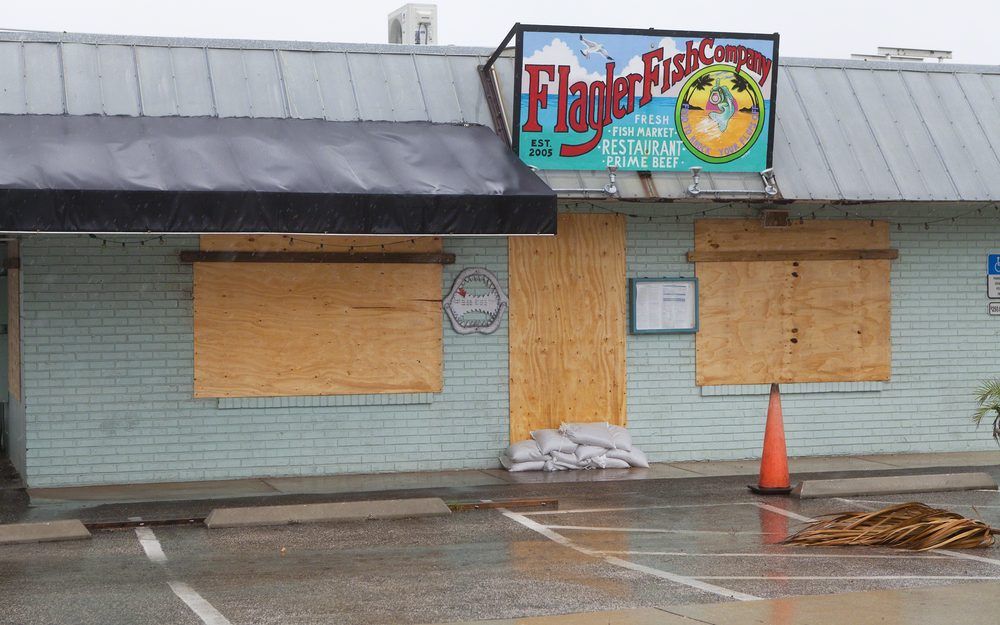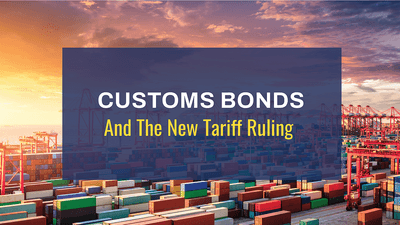November 09, 2016 | Industry Insights
In the Wake of Hurricane Matthew, Businesses Rethink Preparedness

Hurricane Matthew last month hit the East Coast hard, particularly in Florida, Georgia and the Carolinas. In fact, Matthew is the costliest Atlantic hurricane since Super Storm Sandy four years ago. Property losses for both residential and commercial properties from Matthew are estimated to be between $4 billion and $6 billion from wind and storm surge damage, according to research and consulting firm CoreLogic. This does not include insured losses related to additional flooding, business interruption or contents, said CoreLogic.
On the heels of this most recent storm, a recent insurance and risk management survey was conducted specifically focused on Matthew’s business impact. The survey shows that increasingly more companies, including transportation intermediaries, are looking to increase their investment in preparedness for natural disasters such as hurricanes. According to the survey, two of five employers (28%) indicated Matthew interrupted normal business operations and 26% said their companies lost customers or orders because of the storm.
Preparedness for logistics service providers, freight forwarders, and others in the transportation industry involves having robust, up-to-date risk management strategies in place to mitigate the impact of a hurricane, including understanding the hazards that can disrupt business continuity and combining property loss prevention with the proper insurance protection. With regard to insurance protection, there are several policies that should be reviewed to ensure that you are properly protected in the event of property damage and a disruption to your business operations. This includes the following:
Commercial Property Coverage
If your building or business property is damaged as a result of a hurricane or other natural disaster, most first-party Commercial Property policies will respond to more than just physical damage to owned property. Loss of use of your property that has not been physically damaged is typically also included, such as inventory as well as property leased, property within your care, custody or control. Many Property policies also will provide additional coverage for debris removal, demolition and increased cost of construction should you suffer a physical loss to covered property.
Business Interruption and Contingent Business Interruption Insurance
Business interruption and Contingent Business Interruption are significant drivers behind the increasing severity of very large property losses. This involves loss of profits, which are typically covered under one or more provisions of most Property policies. Business Interruption insurance comes into play to reimburse you for losses sustained due to the total or partial suspension of your operations during a period of interruption. For example, Business Interruption coverage would cover the profit lost while repairing the damaged property your operation suffers as a result of storm damage. Many policies also provide coverage for extra expenses to maintain the operation while the property is being repaired. Covered extra expenses generally include such costs as rent, moving and hauling expenses, overtime, temporary labor, and advertising. Contingent Business Interruption insurance covers losses stemming from property damage to the premises of a supplier or customer, which causes your operation to suffer a business interruption loss. This is particularly critical in today’s global supply chain.
It’s important to note that Business Interruption claims are complex and difficult to quantify. It’s important to review your coverage carefully, including the type of events and property covered, how the policy defines business income interruption, what event(s) must occur to trigger the policy, and time periods – how much time must pass to start coverage and how long is coverage provided.
Utility Service Interruption Insurance
When utility services are interrupted on your premises, Utility Interruption coverage may be available to cover damage to property and the loss of income or extra expense. Utility Interruption coverage generally requires damage to the property of your utility supplier. For example, a power outage as a result of power lines downed by a storm or physical disruption to a transformer or generating station that prevents your business from operating normally. This coverage is commonly limited in duration and subject to waiting periods or deductibles.
About Roanoke Insurance Group
Roanoke Insurance Group specializes in insuring transportation and logistics service providers (LSPs), including custom brokers and freight forwarders. Being prepared before a disaster hits is critical in minimizing potential losses. Having the right insurance program in place to address property damage and business continuity is essential to the ongoing success and profitability of an operation. For a review of your insurance program and for more information about our solutions, please contact one of our professionals at 1-800-ROANOKE (800-762-6653).













